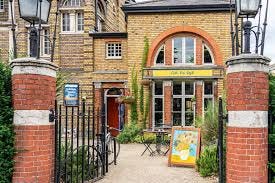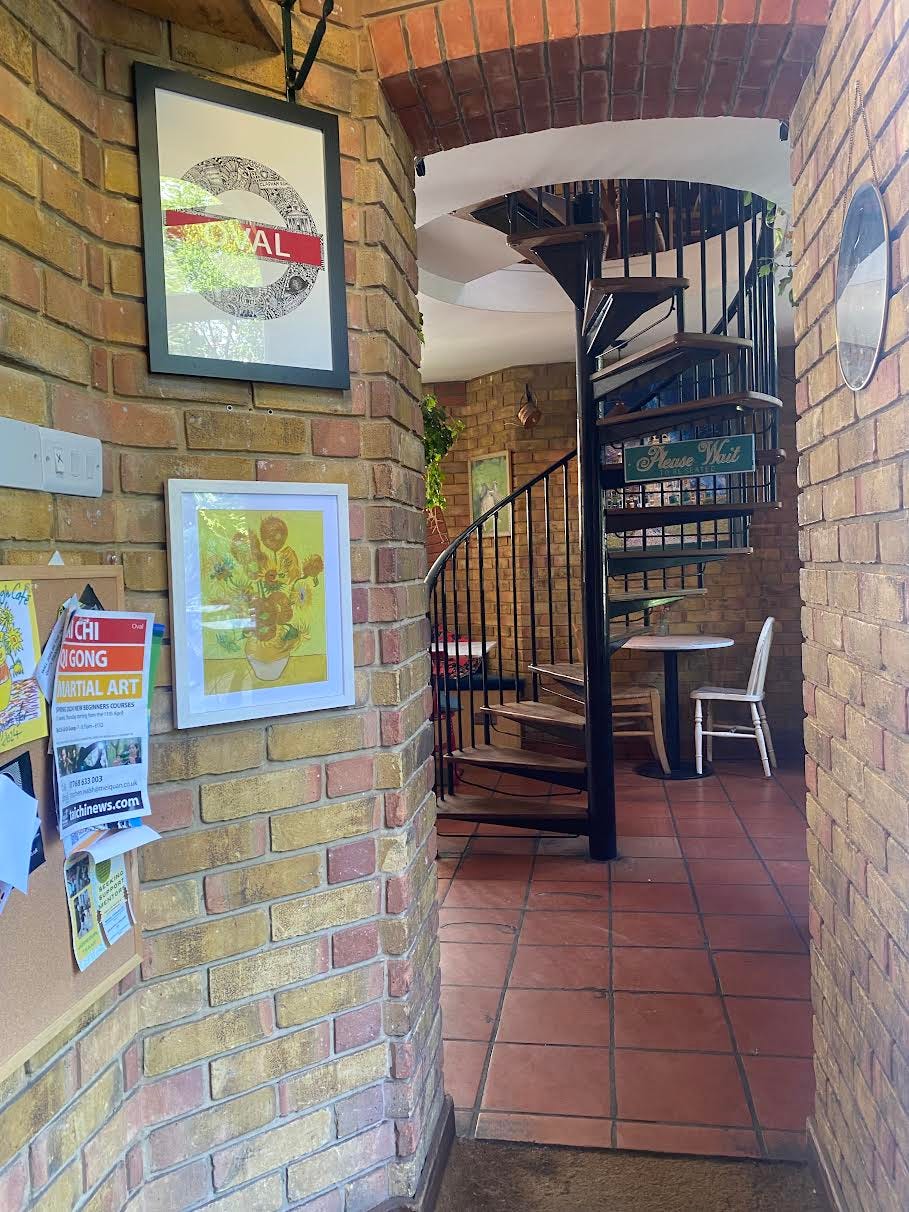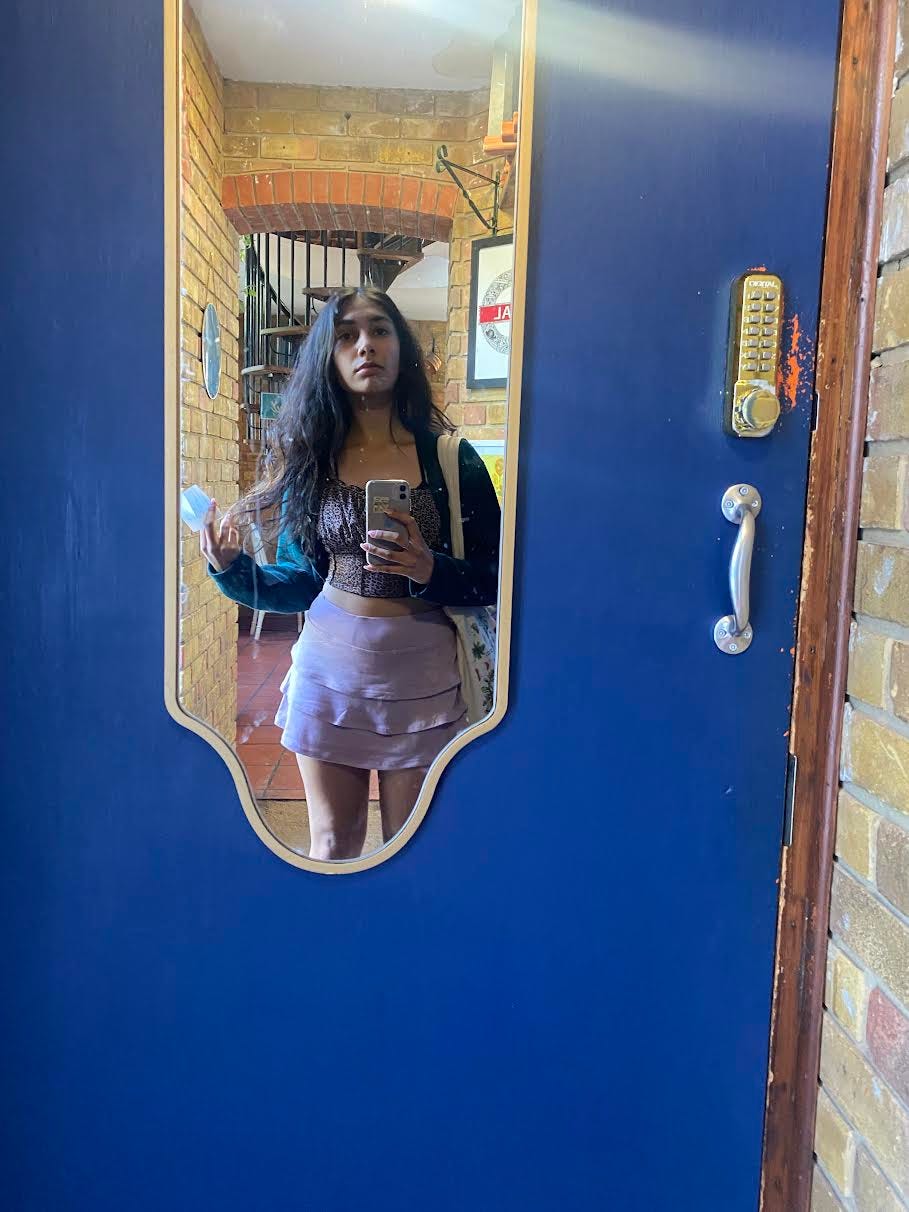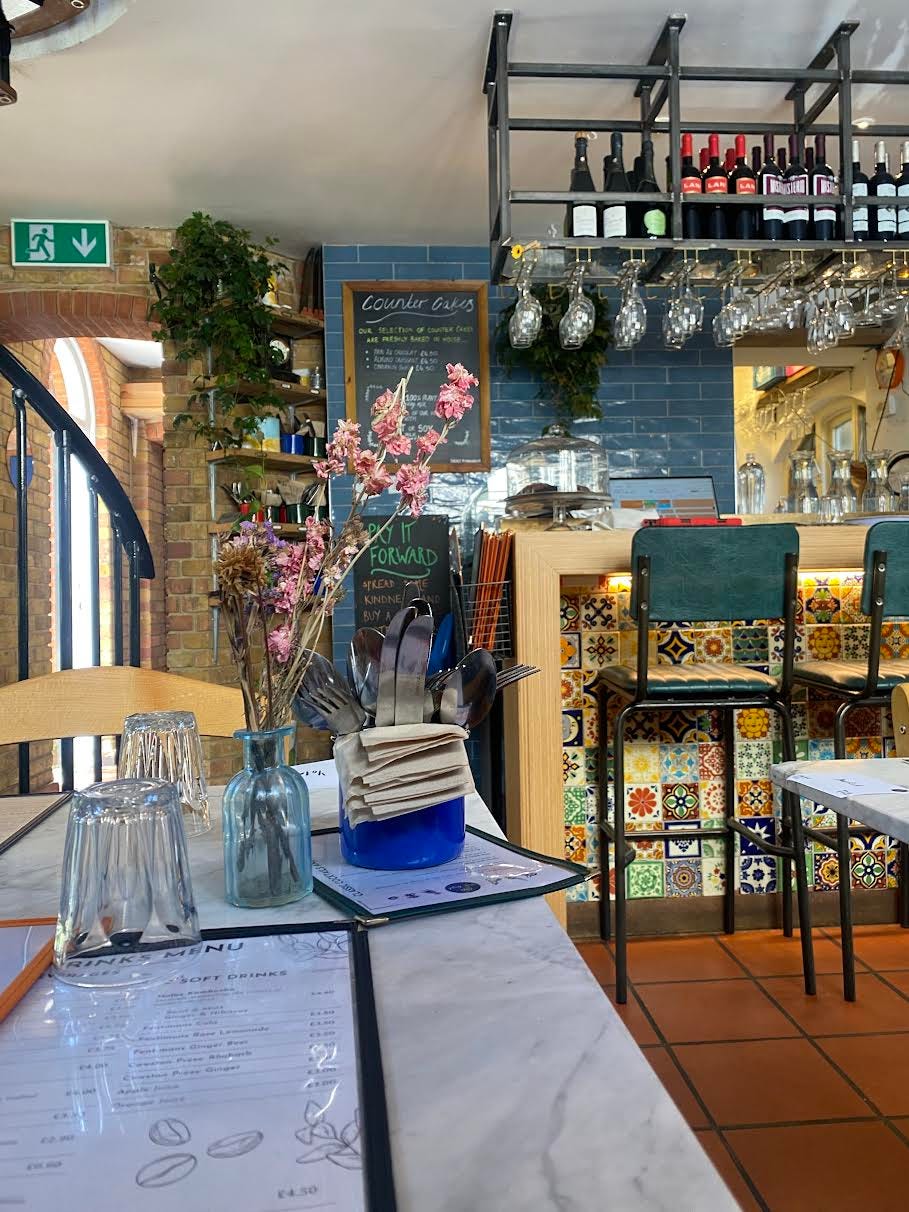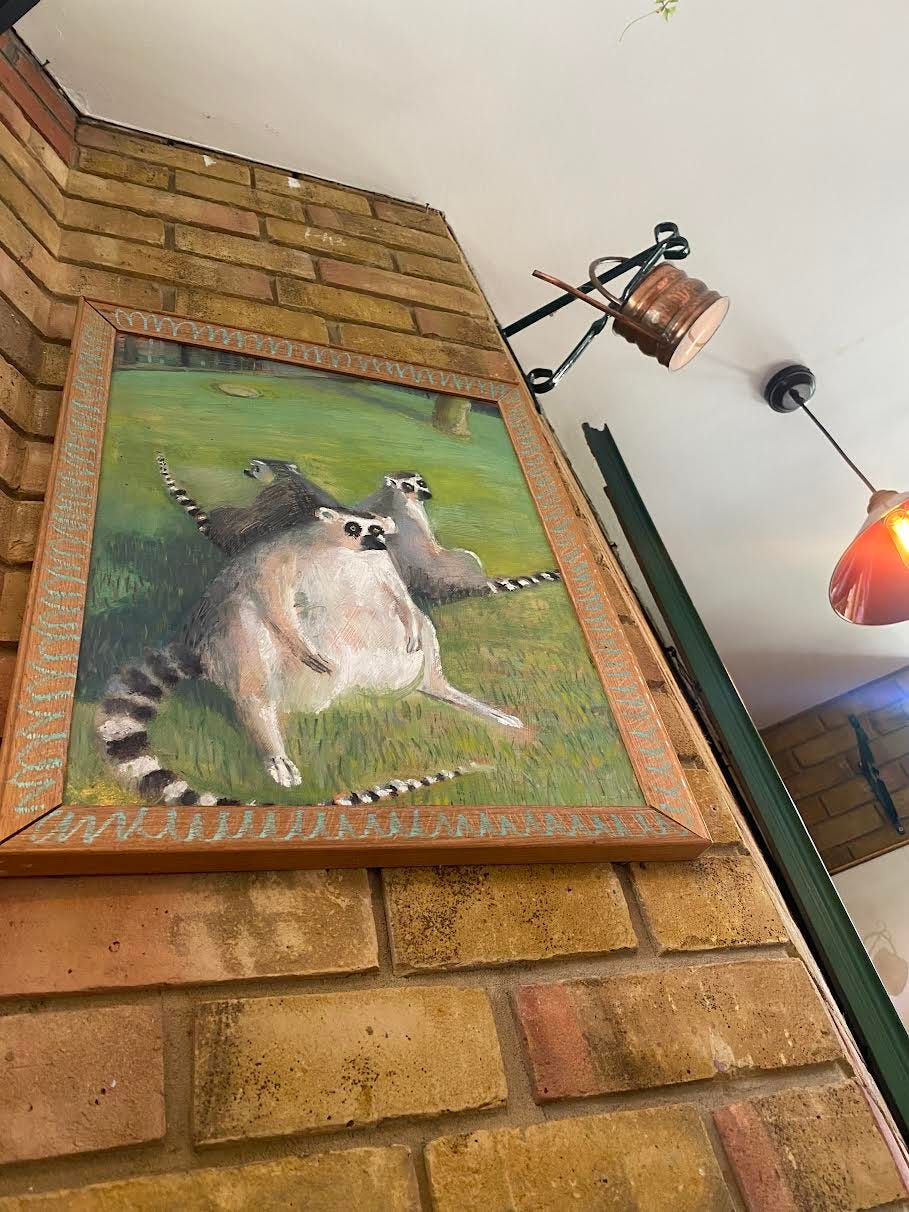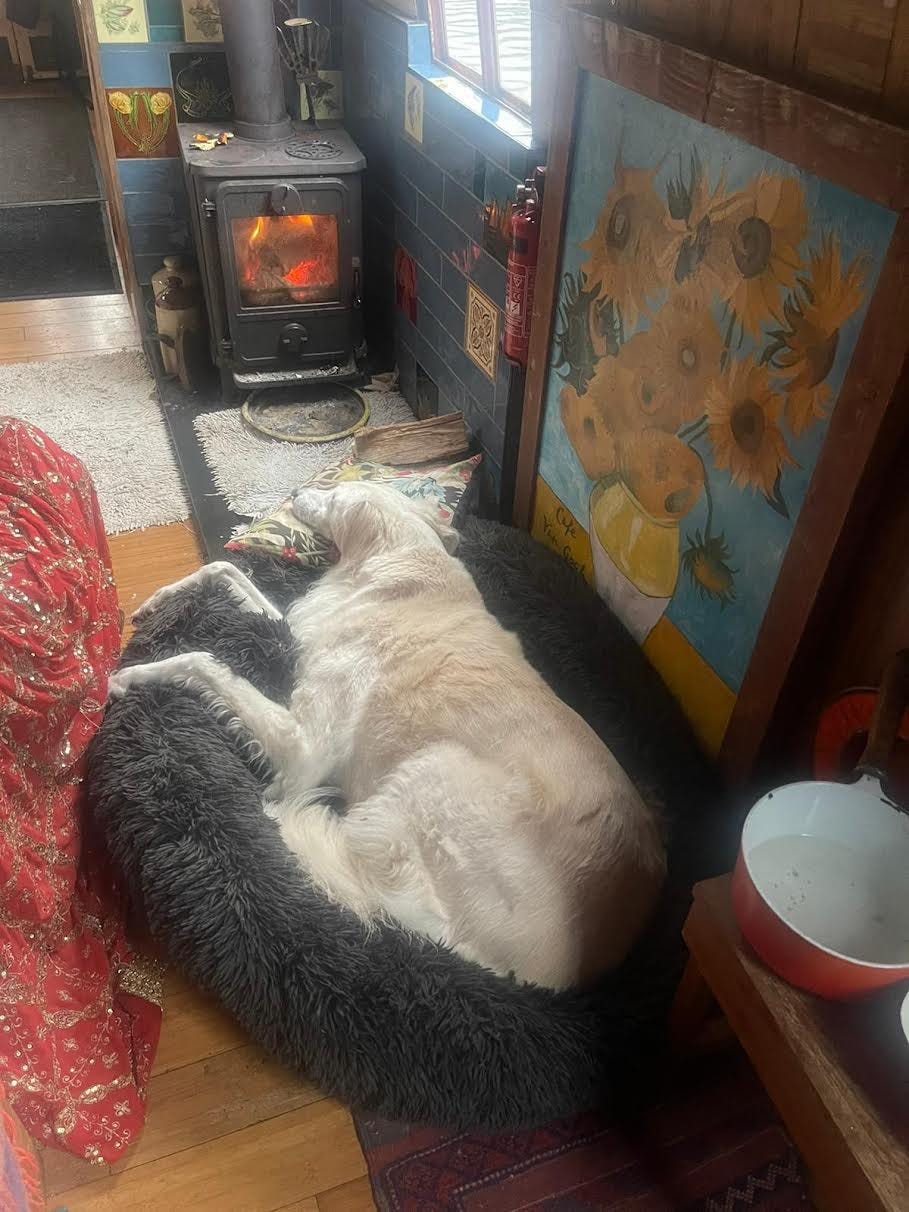Café Van Gogh: The One That Got Away
As independent businesses battle to survive in London's capitalism, vegan social enterprise Café Van Gogh mourns the struggles of sustaining a business that prioritised social over economic values.
In a world where minorities are marginalised through subtle exclusion; Vegans depicted in memes and told that society would be better off without them and only 5% of people in the UK with learning disabilities express a desire to work, while the rest remain at home and rely on government benefits. Café Van Gogh pioneered the ideal of an inclusive and just society where minority groups no longer feared the status quo by offering a place of compassion and kindness, with exquisite catering at the forefront of its social mission.
My sanctuary, where I could study and blog in peace and satisfy all my vegan cravings (since, let's face it, not everyone can appreciate going to a café where everything on the menu is an animal-cruelty-free option).
“We wanted to fill a gap for non- junk vegan food.”
With no distinction between ‘normal’ and ‘oat’ milk, I felt connected with the café and its colourful personalities. Most carcass-munchers would not relate to this given that the world is (unsustainably) designed for them by default, despite all humans naturally being herbivores. Whereas, compassionate animal lovers and environmentalists must go out of their way to seek viable foods to consume, which at times can be draining and demeaning in a rapidly technological changing society.
Winding up the social enterprise in June of 2024, Steve Clarke, owner of Cafe Van Gogh, decided to end his nine-year dream of managing a business that advocated for a more inclusive society where socially under-represented communities could thrive collectively while defying the lack of change, he reveals a few lessons he had discovered.
Steve and his business partner began foretelling what was to come due to the “disastrously quiet” months through January to May. In uncovering the undertones of dismay of the lively staff, Steve admitted that they “tried everything we could change, the menu, cut back on staff hours...We just couldn’t solve the problem... It was all very difficult.”
Recent ONS numbers report that while over 292,000 new businesses were created in 2023, more than 295,000 closed their doors.
~ Office of National Statistics, 2022
“We closed it ourselves”. Retaining autonomy over their business, the insolvency route meant that the decision to close was entirely their choice due to anticipating that a month prior to closure they wouldn't be able to pay staff bills. With staff working on redundancy notices in a high energy environment, most tellingly, Steve said, “Everyone just had to get on with it, it was awful.”
Baring the reality, “the bills were just phenomenal.” Steve’s transparency is supplying figures for the gas and electricity rates that display the significant difference between years: “In May 2022, it was £600; in May 2024, it was £2,400. The alarming, skyrocketed prices were mainly the cause of the lack of a domestic price cap on energy in business. As a restaurant, this financial issue was hard to manage, and despite being “hippies” and naturally wanting to conserve energy, it was simply unsustainable. Keeping costs low was simply "unachievable" whilst maintaining the business, especially during the winter months.
“I would have used my phone flashlight in the toilet if you had asked!” I pleaded with Steve, who chuckled. Cafe Van Gogh frequently operated without a lease, and in order to become a charity and obtain grant funding, they would require one. However, due to the incredibly disorganised mess that was the church next door from which they leased their property from. Steve said, "The last vicar was supportive and wanted to make it work; he died of cancer during Covid. They replaced the vicar, and he wasn't interested in the cafe or the social mission."
Regrettably, the church's lack of impact in contributing to the cafe's social change and philanthropy may have catalysed their closure. By providing material aid to the social mission the effects may have been transformative in integrating learning disabled people into the world of work and society, with the church's vital presence in building community.
"Every business has a lifecycle...No one talks about the death and closure of the business, it's kind of inevitable."
In maintaining the survival of his business, Steve was forced to pay himself the lower rate of income for his wage of 25k a year while using all his savings to help fund the business; ultimately, "It was time to go," as the cafe had difficulty in managing with financial sustainability.
“We never really made a profit, it we made a profit one month, we took a loss the next, we were always cruising and breaking even.”
When referring to employees and staff, Steve remarked, "It was about the warmth that they brought, rather than their skills and abilities; you can train that, but their attitude really mattered."
Despite great efforts of boosterism and "doing everything right," Steve highlighted the disparity between Cafe Van Gogh and shareholder-run restaurants such as Leon that have financial advisors to swerve and contribute back to society, exacerbating the tremendous rise in income and wealth inequality. “We never really made a profit, it we made a profit one moth, we took a loss the next, we were always cruising and breaking even.”
“People get fatigued, the positivity goes and people don’t want to be associated to what looks like a failing business.”
"We were always vegetarian, when we became vegans we actually lost a lot of customers." Voicing larger social issues at hand, the ignorance of climate justice and animal rights go remiss to many that populate London, due to many factors, one largely being the lack of education about the relationship with climate action and economic injustices. Steve added, “We realised our customers were just people who wanted to eat good food and support a social mission.”
Claiming to be inclusive and diverse, London offers a "fallacy of acceptance" , Van Gogh Cafe embodied the ethos of "giving people a chance, understanding invisible difficulties and making those understand how these people (with learning disabilities) want to be included."
~ Michelle, Toucan Employment
Defining himself as a "massive Marxist hippy," Steve presently resides on his narrowboat, which he's had for years and often used to chill out on it after shifts at the cafe.

